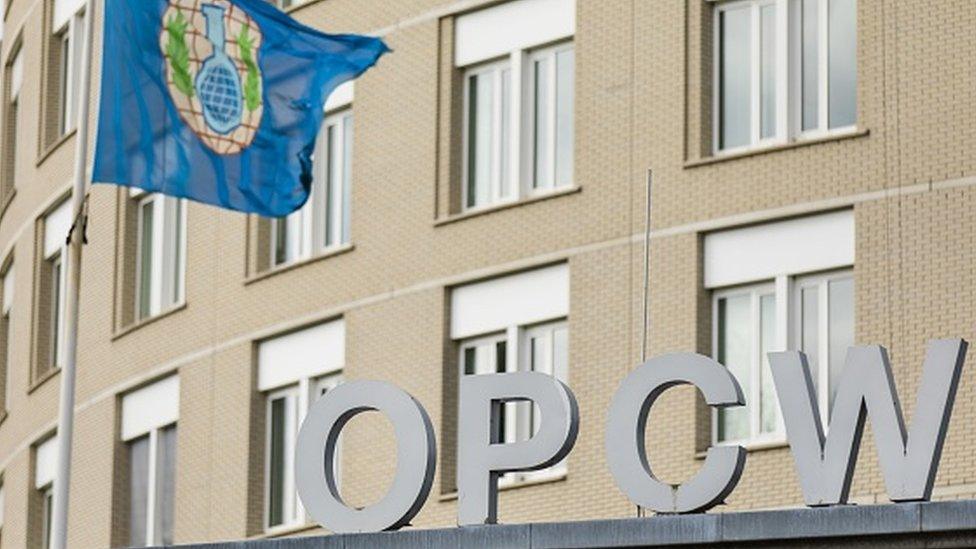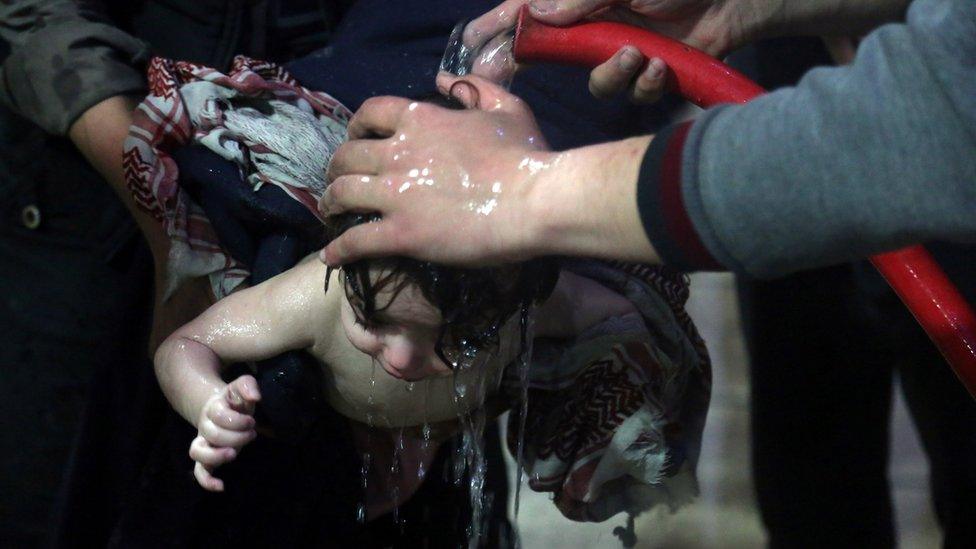Syria war: Chlorine likely to have been used in Douma attack - OPCW
- Published

The OPCW has said its data provided "reasonable grounds" the attack took place, but did not assign blame.
The global chemical weapons watchdog has concluded chlorine is likely to have been used in an attack on the Syrian town of Douma last April.
The Organisation for the Prohibition of Chemical Weapons (OPCW) said, external data gave "reasonable grounds that the use of a toxic chemical as a weapon took place".
"This toxic chemical contained reactive chlorine," it added, without assigning blame.
Medics said more than 40 people died in the attack on the then rebel-held area.
The US, UK and France accused Syrian government forces, who were besieging Douma, of using chemical weapons in the 7 April attack, and carried out air strikes in retaliation.
The Syrian government has denied ever using chemical weapons. Its ally Russia has said the attack was "staged" by rescue workers.
The OPCW's conclusions were based on environmental samples, witness interviews and other data gathered by members of a fact-finding mission that visited a number of sites in Douma two weeks after the attack.
The watchdog also said it found no evidence of the use of nerve agents in Douma, as some initial reports suggested, nor any evidence to support the government's claim that a local facility was being used by rebel fighters to produce chemical weapons.
In June, the OPCW was given new powers to assign blame for chemical attacks. However, it was not the mandate of the fact-finding team sent to Douma to do so.
- Published7 December 2018

- Published7 July 2018
